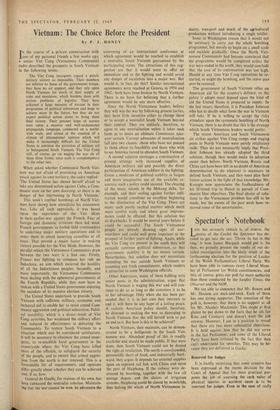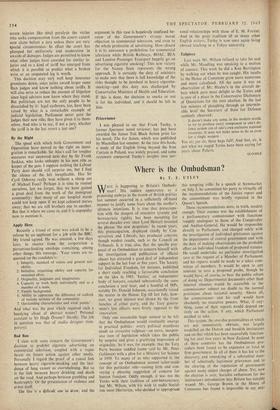Reserved for Judges
It is hardly surprising that some concern has been expressed at the recent decision by the Court of Appeal that for most practical pur- poses the job of assessing the cash value of physical injuries in accident cases is to be reserved for judges. Even in the case of really
severe injuries like total paralysis the victim who seeks compensation from the courts cannot now claim before a jury unless there are very special circumstances. In effect the court has plumped for uniformity and moderation in awards of damages. Judges are permitted to know what other judges have awarded for similar in- juries and so a kind of tariff has emerged from which it is possible to predict what a broken wrist or an amputated leg is worth.
This decision may very well keep insurance premiums down, since juries award larger sums than judges and know nothing about tariffs. It will also serve to reduce the amount of litigation since legal advisers now know where they stand. But politicians are not the only people to be dissatisfied by it: legal eyebrows, too, have been raised by what is a remarkable example of judicial legislation. Parliament never gave the judges their new role; they have given it to them- selves. And who is to say, if not a jury, whether the tariff is in the last resort a just one?


































 Previous page
Previous page